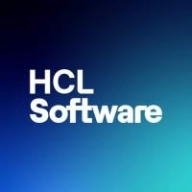

HCL Domino and GitHub CoPilot compete in the enterprise software solutions category. HCL Domino appears to have the upper hand due to its robust security and integration capabilities, along with extensive customer service options.
Features: HCL Domino is known for robust integration capabilities, strong security, workflow applications, and versatility across operating systems, making it ideal for centralized management. It supports both messaging and applications and is widely appreciated for its stability and strong security measures. GitHub CoPilot is highly valued for enhancing productivity through its AI-driven code generation and context-aware suggestions. It benefits developers by expediting coding tasks and integrating seamlessly with popular development environments like Visual Studio Code.
Room for Improvement: HCL Domino needs enhancements in user-friendliness, integration with third-party platforms, and performance with large datasets. Its interface remains outdated compared to competitors like Microsoft Exchange. GitHub CoPilot can improve its suggestion accuracy, expand language support, and better integrate across different development environments. Users express a need for more intuitive control over its activation and improved handling of multiple file projects.
Ease of Deployment and Customer Service: HCL Domino is primarily deployed on-premises with strong technical support, suggesting better user satisfaction compared to GitHub CoPilot, which, while offering both on-premises and cloud options, has lower ratings for customer service. GitHub CoPilot's cloud accommodation could offer a flexibility edge, but its technical support clarity needs enhancement to reach the responsiveness seen with HCL Domino.
Pricing and ROI: HCL Domino's pricing model, while reasonable to some, is criticized for high costs and unjustified ROI, particularly when compared to competitors offering enticing deals. The license costs are variable and can become expensive, impacting smaller companies more. GitHub CoPilot offers a more transparent pricing model with options for personal and enterprise licenses, often seen as affordable with tiered structures. However, its ROI perception varies, indicating that lower costs might broaden its appeal.
A lot of time is saved using GitHub CoPilot because the PR review process used to take two to three days, but now it takes about two to three minutes to analyze the complete PR, get context, and give the rating.
Efficiencies with GitHub CoPilot have improved by 30%, which means a quicker go-to market and a simplified way of documenting technical designs.
With a large user base, it covers a wide range of questions, from simple to complex, ensuring that answers are available.
Whenever there's a downtime of GitHub CoPilot or any issue with login or plugins, customer support is good enough to solve those issues.
GitHub technical support is excellent.
My experience with the technical support of HCL is that they are responsive.
It cannot be fully depended on to build every component and run a large enterprise application without significant human intervention.
Multiple people using it get a lot of immediate and exact responses useful for fixing issues, debugging, automating, or enhancing features.
With an enterprise plan, there are no limitations, so scalability is not an issue.
Some features are simply not really possible with standard HCL client applications, which means moving all application development to web access, adding a lot of work.
In most cases, it does not generate irrelevant code.
At certain times, you may not get the required response and realize it's either down or not responding for other reasons.
Once we develop an application, it basically works and does not really break.
Users should not be 100% reliant on AI or any LLMs. They need to work on it and they need to review the code.
There is excellent support across various code editors like JetBrains, VS Code, and NeoGen.
To understand our application better and learn from it would likely require access to the entire codebase, which a lot of companies may not allow.
In-line editing of documents and a document viewer are functionalities that would be beneficial.
I would say that there are much better low-code platforms.
They recently made Copilot free to use up to a certain limit, which is a positive change.
The kind of use that I am having with a $20-30 license, I think it is really of really good help.
The Notes client is very expensive, costing around $105 per client.
It is certainly time-saving; we have seen upwards of around 30% plus of time savings using GitHub CoPilot.
Things which were taking like two days are now finished within half an hour.
Context awareness, inline autocompletions, rapid code prototyping, Agentic mode, and availability in multiple language IDEs are the best features of GitHub CoPilot.
Its hybrid nature allows the use of both web-based applications and Notes client-based applications.
Some of the best features in HCL Domino are that it functions as a Swiss army knife.
| Product | Market Share (%) |
|---|---|
| GitHub CoPilot | 3.9% |
| HCL Domino | 1.0% |
| Other | 95.1% |

| Company Size | Count |
|---|---|
| Small Business | 14 |
| Midsize Enterprise | 2 |
| Large Enterprise | 16 |
| Company Size | Count |
|---|---|
| Small Business | 17 |
| Midsize Enterprise | 3 |
| Large Enterprise | 2 |
GitHub CoPilot accelerates developer productivity with code generation, test case creation, and code explanation. It provides context-aware suggestions, integrates with popular IDEs, and supports multiple languages.
GitHub CoPilot significantly boosts development efficiency by reducing coding and debugging time. Its user-friendly auto-complete and variable detection features streamline complex tasks, serving as a learning tool for developers. Areas needing improvement include its accuracy, stability, and broader integration with IDEs and languages. Users find the pricing strategy expensive and wish for enhanced contextual understanding, diverse result formats, and image support. Expanded functionality and better integration in highly regulated environments are important for future growth.
What are the most valued features of GitHub CoPilot?Utilized across industries to enhance application development and productivity, GitHub CoPilot assists in generating code snippets, writing code skeletons, analyzing documents, and automating workflows. It supports coding best practices, prompt engineering, and natural language processing. Developers leverage its capabilities for creating meeting summaries, report recommendations, and content ideas, thereby optimizing workflow efficiency.
HCL Domino (formerly IBM Domino) is a secure, enterprise-grade, application development platform. From IT to business, HCL Domino is the only low to pro-code application development platform that allows your business to build robust applications to solve workflow and process challenges fast. HCL Domino powers businesses around the world with 15,000 customers and 10 million apps built on our platform. HCL Domino has always been a secure, rock-solid, and proven solution.
We monitor all Rapid Application Development Software reviews to prevent fraudulent reviews and keep review quality high. We do not post reviews by company employees or direct competitors. We validate each review for authenticity via cross-reference with LinkedIn, and personal follow-up with the reviewer when necessary.